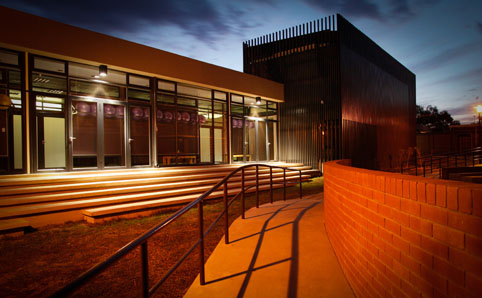Latest News Archive
Please select Category, Year, and then Month to display items
12 October 2020
|
Story Arina Engelbrecht
|
Photo Supplied
 Arina Engelbrecht from Organisational Development and Employee Well-being believes physical activity has a number of benefits for one’s health, including stress relief.
Arina Engelbrecht from Organisational Development and Employee Well-being believes physical activity has a number of benefits for one’s health, including stress relief.
Being physically active plays a big role in preventing the development of mental-health problems and in improving the quality of life of people experiencing mental-health problems.
Treatment for depression
Physical activity can be an alternative treatment for depression. It can be used as a stand-alone treatment or in combination with medication and/or psychological therapy. It promotes all kinds of changes in the brain, including neural growth, reduced inflammation, and new activity patterns are formed that promote feelings of calm and well-being. It releases endorphins – powerful chemicals in the brain that energise your spirit and make you feel good.
Physical activity can be very effective in relieving stress. Research in adults has found that physically active individuals tend to have lower stress levels compared to individuals who are less active. It also leads to improved sleep. When a person sleeps better and feels more rested, overall quality of life improves. They cope better with daily life stressors.
Reduce Alzheimer's risk
Regular physical activity can reduce your risk of developing Alzheimer's disease by up to 50%. It can also slow down further deterioration in those who have already started to develop cognitive problems. It stimulates the brain’s ability to maintain old connections as well as to make new ones.
A study asked people to rate their mood immediately after periods of physical activity (e.g. going for a walk/run, cycling, doing housework) and periods of inactivity (e.g. reading a book or watching television). Researchers found that participants felt more content, more awake, and calmer after being physically active compared to after periods of inactivity.
In conclusion, people who are physically active feel a sense of well-being, feel more energetic throughout the day, sleep better at night, have sharper memories, and feel more relaxed and positive about themselves and their lives.
“Being physically active not only changes your body, it changes your mind,
attitude, and your mood.” – Arina Engelbrecht
Kovsies first with Clinical Skills Centre for the allied health professions
2011-10-27
 |
|
First Clinical Skills Centre in South Africa on our Bloemfontein Campus
Photo: Rian Horn
|
The School for Allied Health Professions within the Faculty of Health Sciences at the University of the Free State (UFS) recently opened the first Clinical Skills Centre for the allied health professions in South Africa.
The multifunctional centre will be used for the practical training of undergraduate students in the allied health professions, which include occupational therapy, physiotherapy, dietetics and optometry.
The concept for the Clinical Skills Centre was the brainchild of the Head of the School for Allied Health, Dr Santie van Vuuren. According to Dr Van Vuuren, the Clinical Skills Centre not only addresses specific needs within the South African context, but also fits in with the current curriculum of the programmes within the School for Allied Health. She says the Centre is a symbol of quality and excellence in the training of undergraduate students.
The Clinical Skills Centre was designed in such a way that it can be converted into one or more lecture halls. It boasts the latest technology such as interactive computer screens which can be used for lectures. Most of the equipment students will use during their practical training is on wheels and can be used between different classes. The centre also has a stair lift attached to a banister to transport disabled people from one floor to another in his/her wheelchair.
Media Release
27 October 2011
Issued by: Lacea Loader
Director: Strategic Communication
Tel: 051 401 2584
Cell: 083 645 2454
E-mail: news@ufs.ac.za